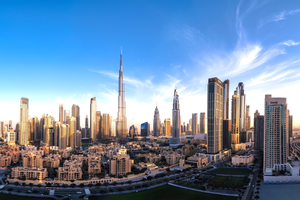Almost half of UAE residents say the 'cost of living' is the leading cause of stress, followed by personal and family financial concerns, according to a survey released on Thursday by a global health service company.
"The 'cost of living crisis' – driven by global inflation – is the leading cause of stress in the UAE, as 45 per cent of respondents indicated. This concern is closely followed by issues related to personal (40 per cent) and family finances (39 per cent),"
Cigna Healthcare noted.
"With the expectation that global interest rates will remain high in the coming months, financial concerns are likely to persist for the foreseeable future,"
added Cigna Healthcare, which has been operating for almost 20 years in the Mena region.
Cigna Healthcare conducted a 360° wellbeing survey called 'Vitality Study' of over 10,800 respondents in 12 countries and territories, including the UAE, between May and June 2023. Vitality refers to individuals' or employees' overall health, resilience and ability to adapt and thrive at work.
The survey focused on eight key aspects of vitality, including emotional, environmental, financial, intellectual, occupational, physical, social, and spiritual. It covered 1,000 respondents in the UAE who were office-bound, primarily employees.
'Exceptional vitality scores'
According to Cigna, the UAE tops the global charts with exceptional vitality scores.
"The UAE's commitment to holistic health has contributed to higher-than-average vitality levels and a better work-life balance, positioning the country as a frontrunner in health and wellbeing,"
noted Jérôme Droesch, CEO of Domestic Health and Health Services, International Health at Cigna Healthcare.
"Notably, 32 per cent of UAE respondents reported high vitality levels, surpassing the global average of 17 per cent,"
Cigna noted.
"This underscores the effectiveness of the UAE's strategies in promoting holistic wellbeing. The study also examines stress levels, work-life balance, and the impact of the global inflation crisis, shedding light on both the challenges and opportunities in the region's health and wellbeing landscape,
Droesch explained.
He noted:
"This year's Vitality Report is a testament to the UAE's resilience and dedication to holistic health. The high vitality scores reported in this study and the country's focus on mental, emotional, and social aspects of health amid global challenges reflect our community's strength and the need for continued emphasis on comprehensive wellbeing strategies."
Better work-life balance
The Vitality Survey also covered various aspects of life, such as mental health, work-life balance, and family relationships. It also examined how individuals perceive their autonomy, competency, and relatedness - crucial factors in understanding the ability to make personal choices and maintain control over various life domains.
Based on the survey in the UAE, 71 per cent said they value learning new things and understanding more and more; 65 per cent look forward to each new day; 63 per cent know places they can always go to where they feel safe and well; 63 per cent can successfully build connections with others; and 60 per cent prioritise their physical health.
"The concept of health has evolved significantly. Once considered solely a reflection of physical health, it has become a broader covering body and mind, including everything from mental health to work and family life,"
the survey noted.
Cigna Healthcare Vitality Study in numbers:
32% of UAE respondents report high vitality levels, with women showing marginally higher vitality than men. UAE outperforms the 17% global average of vitality
71% value learning new things, 65% look forward to each new day, 63% feel safe
Stress in the UAE remains high at 89%, with 99% of respondents experiencing burnout symptoms. The 'cost of living crisis' is the leading cause of stress (45%), followed by personal and family financial concerns.
There's an improvement in work-related stress, with 61% working full-time in the office and others in hybrid arrangements. This shift has enhanced concentration at work (44%) and coworker relationships (40%).
Post-pandemic lifestyle shifts continue, with 79% emphasising the importance of being close to family and friends and 75% prioritising health and well-being more than before.
In the UAE, 74% of employees feel challenged by inflation in maintaining health, with 77% desiring more employer support. Private health insurance plans (83%), flexible work arrangements (35%), and mental health support (33%) are the top employee preferences for health programmes.
News Source: Khaleej Times









